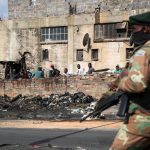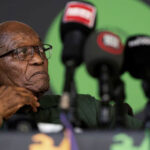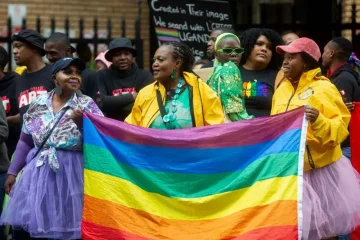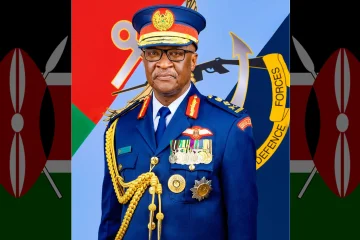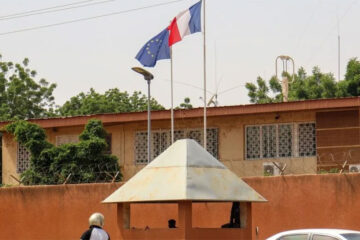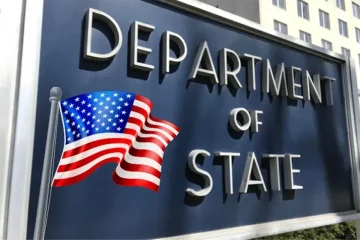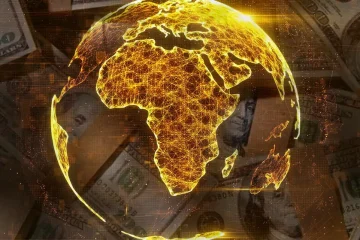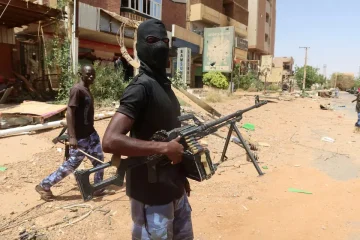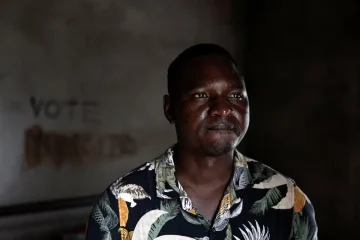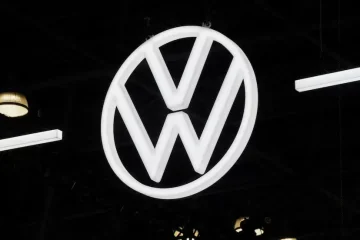AFRICAN MIRROR REPORTER
SOUTH Africa deployed soldiers today to quell violence that erupted in the wake of former president Jacob Zuma’s jailing, after days of riots left at least six people dead.
Police said disturbances had intensified and 219 people arrested as the controversial ex-leader challenged his 15-month prison term in the country’s top court.
Smoke from burning buildings swirled in the air as items from burgled shops lay strewn by the side of the road in Pietermaritzburg in Zuma’s home province of KwaZulu-Natal (KZN).
The sporadic pro-Zuma protests that broke out when he handed himself over last week have quickly escalated into looting and arson, mainly in KZN but also in Gauteng where the biggest city Johannesburg is.
Some COVID-19 vaccination sites and clinics in Gauteng and KZN were shuttered due to safety concerns, the Gauteng provincial government and an independent pharmacy association said, further delaying a sluggish immunisation campaign.
Opportunistic criminals appear to be taking advantage of the anger some feel over Zuma’s incarceration to steal and cause destruction, police said.
A statement from the military said “pre-deployment processes had started” following a request for assistance from a government intelligence body, but a Reuters cameraman in Pietermaritzburg saw armed soldiers already in the streets.
The rand dropped sharply and was trading down 1.5% against the U.S. dollar at 1830 local time (1630 GMT).
President Cyril Ramaphosa would address the nation about the violence at 1800 GMT, his office said.
Any confrontation with soldiers risks fuelling claims by Zuma and his supporters that they are victims of a politically-motivated crackdown by his successor Ramaphosa.
Zuma, 79, was sentenced late last month for defying a constitutional court order to give evidence at an inquiry investigating high-level corruption during his nine years in office until 2018.
The decision to jail him resulted from legal proceedings seen as a test of post-apartheid South Africa’s ability to enforce the rule of law, including against powerful politicians.
In a virtual hearing on Monday, Zuma’s counsel asked the constitutional court to rescind his jail term, citing a rule that judgments can be reconsidered if made in the absence of the affected person or containing a patent error. But legal experts say Zuma’s chances of success are slim.
BRAZEN THEFT
Footage shot by Reuters in the Katlehong township in Gauteng showed police firing rubber bullets at looters to disperse them.
At the Jabulani Mall in Soweto looters brazenly walked past TV cameras carrying armfuls of stolen goods.
Liquor stores were among those affected, as the sale of alcohol is currently banned under COVID-19 restrictions designed to ease pressure on hospitals, as were shops of companies like pharmacy group Clicks, and food retailers Pick n Pay and Shoprite.
As of Monday morning the bodies of four people had been found – at least two with gunshot wounds – in Gauteng, intelligence structure NatJOINTS said. Two deaths had happened in KZN, and all six were being investigated.
Ramaphosa said on Sunday there was no justification for violence and that it was damaging efforts to rebuild the economy after COVID-19.
The governing African National Congress (ANC) said on Monday that the poor would bear the brunt of the destruction as critical public services had been disrupted and several small businesses destroyed.
The movement of freight out of Durban port’s container terminal was disrupted, while a logistics executive who asked not to be named said he had taken all 300 of his trucks transporting metals like copper and cobalt off the roads. Mining industry body the Minerals Council said some shipments out of the Richards Bay port had been delayed.
Zuma’s imprisonment marks a significant fall from stature for a leading figure in the ANC.
He was once jailed by South Africa’s pre-1994 white-minority rulers for his efforts to make all citizens equal before the law, but for many his reputation is now tarnished after a string of sleaze and graft scandals.
The corruption inquiry that Zuma has refused to cooperate with is examining allegations that he allowed three Indian-born businessmen, Atul, Ajay and Rajesh Gupta, to plunder state resources and peddle influence over government policy. He and the Gupta brothers, who fled the country after his ouster, deny wrongdoing.
Zuma also faces a corruption case relating to a $2 billion arms deal in 1999 when he was deputy president. He denies the charges in that case.
Ramaphosa, Sihle Zikalala, the Premier of KwaZulu-Natal and David Makhura, the Premier of Gauteng have condemned the lawlessness.
Ramaphosa said: “In the past few days, we have seen sporadic but increasingly violent protests in some parts of the country. Key infrastructure like national roads have been affected, slowing down the transportation of goods and services that keep our economy running. Property has been destroyed. Cars have been stoned. People have been intimidated and threatened, and some have even been hurt. These acts are endangering lives and damaging our efforts to rebuild the economy.
“Our Constitution guarantees everyone’s right to freely express themselves and to engage in peaceful protest. While there are those who may be hurt and angry at this moment, there can never be any justification for such violent, destructive and disruptive actions. It is a matter of concern to all South Africans that some of these acts of violence are based on ethnic mobilisation.
`’This must be condemned by all South Africans at all costs as we are a nation committed to non-racialism and non-tribalism that is underpinned by the diversity and unity of all the people of South Africa, whatever their language, culture, religious beliefs and race. Our commitment to our democratic Constitution is based on the fundamental principle that all people are equal before the law, and that all people have the right to equal protection before the law.
“The rule of law safeguards against the abuse of power. The rule of law protects the poor and the vulnerable. Since the advent of democracy, institutions like the Constitutional Court have been at the forefront of improving the lives of South Africans. Let us be clear, as a nation, that we will not tolerate acts of criminality. Those who are involved in acts of violence will be arrested and prosecuted. Those found guilty of breaking the lockdown regulations will receive the stipulated penalty. This will be done without fear or favour.”
He also condemned those who were using social media to create confusion by sharing false images and videos, often from events that took place many years ago.
“I ask that you think carefully before sharing anything on social media or elsewhere that may not be accurate or verified. The vast majority of this country’s citizens have shown that they want to live in peace and harmony. They want to work and earn a living. They want to see our country recover from this pandemic,” he said.
Zuma’s case, in which he has asked the Constitutional Court for rescission of his sentence, is scheduled to be heard on Monday.
[origincode_photo_gallery_wp id=”35″]


